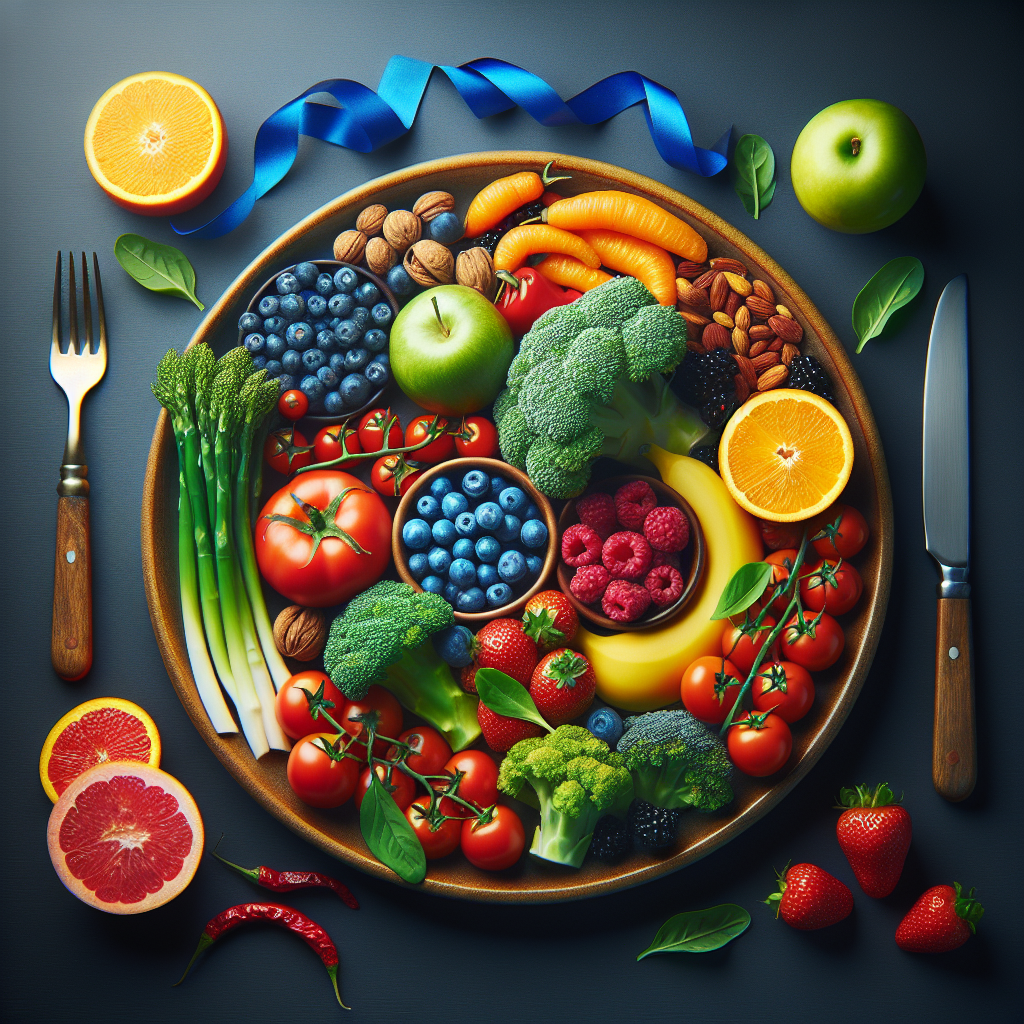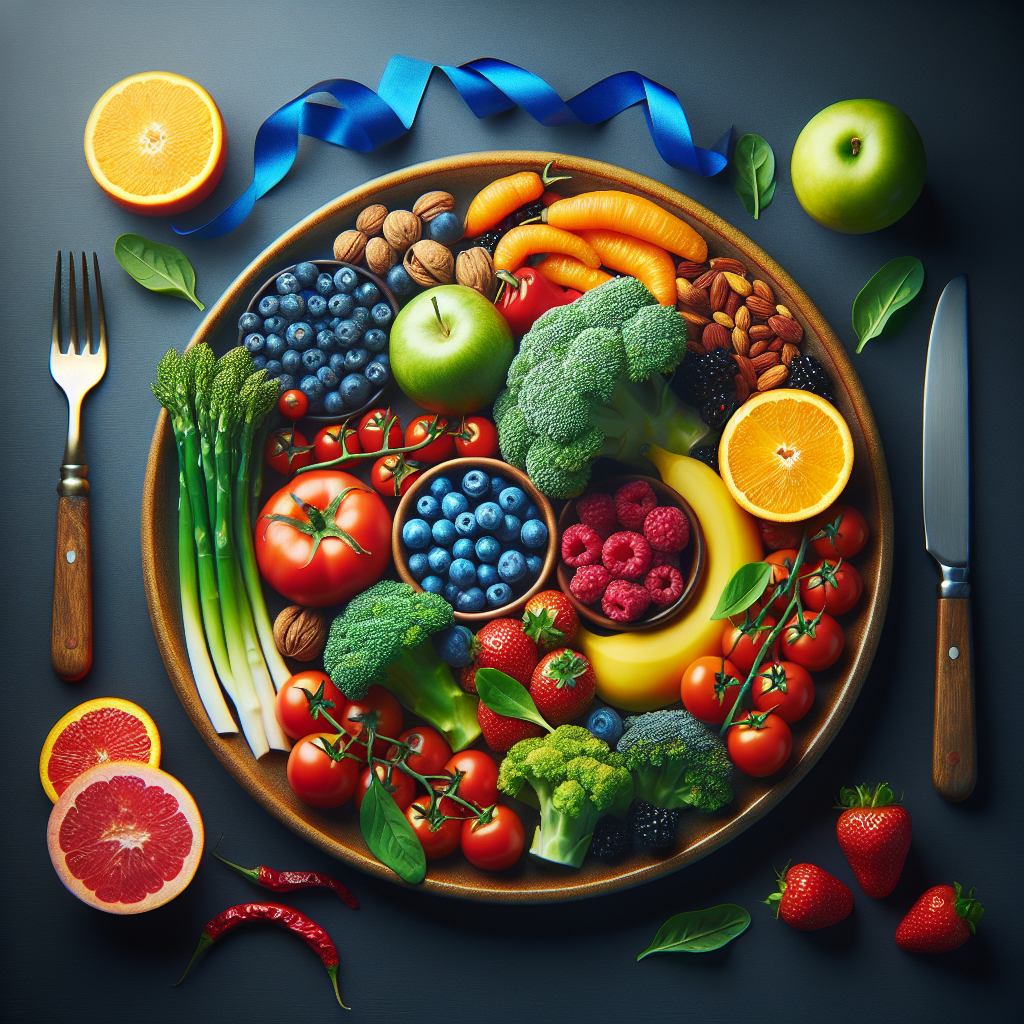If you or a loved one has been diagnosed with prostate cancer, it’s important to recognize the role that diet can play in managing the disease. While there is no magic food that can cure prostate cancer, certain foods may have the potential to slow its progression and reduce the risk of complications. In this article, we will explore a variety of prostate cancer foods that you can incorporate into your diet to support your overall health and well-being. By making informed choices about what you eat, you can take an active role in managing your condition and optimizing your quality of life. So, let’s dive into the world of prostate cancer foods and discover the delicious possibilities that lie ahead!
Prostate Cancer Foods To Eat
When it comes to preventing and managing prostate cancer, incorporating specific foods into your diet can play a crucial role. These foods are rich in nutrients, vitamins, and antioxidants that have been shown to possess anti-cancer properties. In this article, we will explore a variety of prostate cancer-fighting foods and discuss their benefits. By including these foods in your daily meals, you can take an active step towards reducing the risk and managing prostate cancer effectively.

Cruciferous Vegetables
Cruciferous vegetables are a group of vegetables that belong to the Brassicaceae family. These vegetables are not only delicious but are also packed with essential nutrients that can help prevent and fight prostate cancer. Here are some notable cruciferous vegetables that you should consider adding to your everyday diet.
Broccoli
Broccoli, with its vibrant green color and crunchy texture, is a powerhouse vegetable known for its cancer-fighting properties. It contains sulforaphane, a compound that has been extensively researched for its potential to inhibit the growth of prostate cancer cells. Consuming broccoli regularly can also support detoxification processes in the body, promoting overall prostate health.
Cauliflower
Cauliflower is another versatile cruciferous vegetable that offers numerous health benefits, including potential prostate cancer prevention. It is rich in antioxidants, vitamins, and minerals that can help strengthen the immune system and reduce inflammation. By steaming or roasting cauliflower, you can enjoy its delicious taste while reaping its prostate-protective benefits.
Brussels Sprouts
Often overlooked, Brussels sprouts are a nutritional powerhouse that deserves more attention. These miniature cabbage-like vegetables are bursting with vitamins, minerals, and fiber, making them an excellent addition to any prostate-healthy diet. Brussels sprouts contain compounds called glucosinolates, which have demonstrated anti-cancer activities, including potential protection against prostate cancer.
Kale
Known as a superfood, kale is a nutrient-dense leafy green vegetable that offers an array of health benefits. It is rich in vitamins A, C, and K, as well as antioxidants and fiber. Studies have suggested that the compounds present in kale, such as sulforaphane and indole-3-carbinol, may possess anti-cancer properties, making it an ideal addition to a prostate cancer diet.
Cabbage
Cabbage, available in various varieties like green cabbage and red cabbage, is a versatile vegetable that can be enjoyed raw or cooked. It is a great source of vitamins C and K, as well as folate and fiber. Cabbage contains glucosinolates, which can break down into isothiocyanates, compounds that show potential in preventing or slowing the growth of cancer cells. Including cabbage in your meals can be a delicious and healthy way to support prostate health.
Tomatoes
Tomatoes are widely recognized for their beneficial role in prostate health due to the presence of a potent antioxidant called lycopene. Lycopene has been extensively studied for its potential in reducing the risk of prostate cancer and slowing down its progression. Here’s how you can incorporate tomatoes into your diet to maximize their benefits.
Lycopene
Lycopene, the vibrant red pigment found in tomatoes, gives them their characteristic color. This powerful antioxidant has been shown to neutralize harmful free radicals in the body, which can help prevent oxidative damage to cells. By consuming foods rich in lycopene, such as tomatoes, you can support your prostate health and reduce the risk of developing prostate cancer.
Cooked Tomatoes
Interestingly, the bioavailability of lycopene is enhanced when tomatoes are cooked or processed. Heat breaks down the plant cell walls, making lycopene more accessible to the body for absorption. Therefore, incorporating cooked tomatoes or tomato-based products, such as tomato sauce or paste, into your meals can be an excellent way to reap the full benefits of lycopene.
Tomato Products
If you’re looking for convenient ways to add tomatoes to your diet, incorporating tomato products can be a practical solution. Whether it’s tomato juice, canned tomatoes, or salsa, these products contain concentrated amounts of lycopene. Just be mindful of the added sugars or sodium in some processed tomato products, as excessive consumption of these ingredients is not beneficial for overall health.
Berries
Berries are not only delicious and sweet but are also packed with cancer-fighting compounds. Rich in antioxidants and other beneficial nutrients, berries have been studied for their potential role in preventing various types of cancer, including prostate cancer.
Strawberries
Strawberries are a popular berry choice, known for their vibrant color, refreshing taste, and numerous health benefits. They are rich in antioxidants, especially vitamin C and anthocyanins, which have been associated with a lower risk of developing cancer. Including strawberries in your diet can provide a delightful and nutritious way to support prostate health.
Blueberries
Blueberries, known as nature’s “super fruit,” are a nutritional powerhouse that delivers a wide range of health benefits. Packed with antioxidants like anthocyanins and vitamin C, blueberries possess anti-inflammatory properties and may help protect against prostate cancer. Incorporate these tasty berries into your morning smoothies, snacks, or desserts to enjoy their potential prostate-related benefits.
Raspberries
Raspberries, with their tangy-sweet taste, are an excellent source of dietary fiber, vitamins C and K, and an assortment of antioxidants. They contain compounds like ellagic acid, which has shown promising effects in inhibiting the growth of prostate cancer cells. Whether enjoyed fresh or added to cereals, salads, or yogurt, raspberries can make a healthy and delicious addition to your prostate cancer-fighting diet.
Blackberries
Blackberries, similar to other berries, boast an impressive nutritional profile. They are packed with vitamins, minerals, and antioxidants that contribute to their potential cancer-fighting properties. Blackberries contain anthocyanins, which have been shown to inhibit tumor growth and decrease inflammation. Adding blackberries to your meals or enjoying them as a snack can contribute to a prostate-healthy diet.
Green Tea
Green tea, a popular beverage enjoyed worldwide, has gained recognition for its potential health benefits, including its role in cancer prevention and management. Packed with antioxidants, green tea offers numerous advantages for prostate health.
Antioxidants
Green tea is abundant in antioxidants called catechins, which have been shown to possess anti-inflammatory and anti-cancer properties. These powerful antioxidants can scavenge harmful free radicals in the body, reducing the risk of cell damage and mutation. By incorporating green tea into your daily routine, you can provide your body with a natural defense against prostate cancer.
Polyphenols
Polyphenols, a type of antioxidant found in green tea, have been extensively studied for their potential cancer-fighting properties. These compounds have demonstrated the ability to inhibit cancer cell growth, reduce inflammation, and induce cancer cell death in laboratory studies. Drinking green tea regularly allows you to harness the benefits of polyphenols and support your prostate health.
Catechins
Catechins, a specific subclass of polyphenols, are abundantly present in green tea. Epigallocatechin gallate (EGCG), the most well-known catechin in green tea, has gained attention for its potential ability to inhibit tumor growth in prostate cancer. By enjoying a few cups of green tea daily, you can introduce this prostate cancer-fighting compound into your diet and promote overall well-being.

Fish
Fish, particularly fatty fish, is an excellent addition to a prostate cancer-fighting diet. Rich in omega-3 fatty acids and other essential nutrients, fish offers numerous health benefits for prostate health.
Salmon
Salmon, a popular fatty fish, is a rich source of omega-3 fatty acids, specifically eicosapentaenoic acid (EPA) and docosahexaenoic acid (DHA). These fatty acids have been shown to reduce inflammation, support cardiovascular health, and potentially lower the risk of developing prostate cancer. By incorporating salmon into your weekly meals, you can enjoy its delicious taste while optimizing your prostate health.
Sardines
Sardines are another fatty fish powerhouse that can greatly contribute to a prostate-healthy diet. They are packed with omega-3 fatty acids, vitamins, and minerals that support overall well-being. Sardines have also been associated with a reduced risk of prostate cancer due to their anti-inflammatory and antioxidant properties. Including sardines in your diet provides a convenient and affordable option for prostate cancer prevention.
Mackerel
Mackerel, a flavorful fish with a rich texture, is an excellent source of omega-3 fatty acids and protein. Regular consumption of mackerel can help lower inflammation, support heart health, and potentially reduce the risk of developing prostate cancer. With its robust flavor, mackerel can be cooked in various ways, making it a versatile addition to your prostate cancer-fighting meal plan.
Trout
Trout, whether it’s rainbow trout or lake trout, is a delicious and nutritious fish that deserves a spot in your prostate-healthy diet. It is a great source of omega-3 fatty acids, vitamins D and B12, and other essential nutrients. By including trout in your meals, you can enjoy its delicate flavor while benefiting from its potential prostate cancer-fighting properties.
Soy Products
Soy products, such as tofu, edamame, and soy milk, have long been a staple food in Asian cuisine. These plant-based protein sources offer a variety of health benefits, including potential prostate cancer prevention.
Tofu
Tofu, made from soybeans, is a versatile and protein-packed food that can be used in a multitude of recipes. It contains isoflavones, a type of compound known as phytoestrogens, which have been shown to possess anti-cancer properties. Consuming tofu as part of a balanced diet may help regulate hormonal balance and reduce the risk of developing prostate cancer.
Edamame
Edamame, also derived from soybeans, are young, green soybeans that are harvested before they fully mature. They are not only delicious but are also a fantastic plant-based source of protein, fiber, and antioxidants. Edamame contains isoflavones, including genistein and daidzein, which have been studied for their potential protective effects against prostate cancer. Including edamame as a snack or adding them to salads, stir-fries, or soups can provide you with a range of health benefits, including prostate cancer prevention.
Soy Milk
Soy milk is a popular dairy milk alternative made from soybeans. It is fortified with essential nutrients, including calcium, vitamin D, and protein. Soy milk is another way to incorporate isoflavones into your diet, which may have protective effects against prostate cancer. Whether enjoyed on its own, added to coffee or tea, or used in cooking and baking, soy milk can be a versatile and health-promoting option for prostate cancer prevention.
Tempeh
Tempeh, a fermented soybean product, is gaining popularity as a protein-rich meat substitute. It has a firm texture and nutty flavor, making it a delightful addition to various dishes. Similar to tofu, tempeh contains isoflavones that have been linked to potential prostate cancer prevention. By incorporating tempeh into your meals, you can enjoy its plant-based protein, fiber, and beneficial isoflavones while supporting prostate health.
Nuts and Seeds
Including nuts and seeds in your diet can provide a range of health benefits, including potential cancer-fighting properties. These nutrient-dense foods are rich in healthy fats, vitamins, minerals, and fiber.
Walnuts
Walnuts, with their distinctive shape and crunchy texture, are an excellent source of omega-3 fatty acids, including alpha-linolenic acid (ALA). These healthy fats have been associated with a lower risk of advanced prostate cancer. Snacking on walnuts or incorporating them into salads, desserts, or homemade granola can provide a satisfying crunch while supporting prostate health.
Flaxseeds
Flaxseeds, also known as linseeds, are tiny seeds that offer various health benefits, thanks to their high content of omega-3 fatty acids and lignans. Lignans are compounds that have demonstrated potential in reducing the growth and spread of prostate cancer cells. You can enjoy the benefits of flaxseeds by grinding them and adding them to smoothies, oatmeal, yogurt, or baked goods.
Chia Seeds
Chia seeds, small black or white seeds, are renowned for their nutritional value and rich omega-3 fatty acid content. These tiny powerhouses are packed with fiber, protein, and antioxidants, making them an ideal addition to a prostate cancer-fighting diet. Chia seeds can be soaked in liquid to form a gel-like consistency, making them a versatile ingredient for puddings, smoothies, or as an egg substitute in baking.
Brazil Nuts
Brazil nuts, known for their large size and rich flavor, are a fantastic source of selenium, a mineral that plays a vital role in prostate health. Selenium has been shown to have anti-cancer effects, and low levels of selenium have been associated with an increased risk of prostate cancer. Enjoying a few Brazil nuts as a snack or incorporating them into your meals can provide you with this essential mineral and support your prostate health.
Whole Grains
Whole grains are an essential component of a healthy diet and have been associated with a reduced risk of various diseases, including prostate cancer. These grains are packed with fiber, vitamins, minerals, and other beneficial compounds that support overall well-being.
Oats
Oats, with their warm and comforting nature, are a versatile whole grain that can be enjoyed in various forms. They are an excellent source of fiber and provide a sustained release of energy throughout the day. Oats contain avenanthramides, antioxidants that have shown potential in reducing inflammation and slowing down the growth of cancer cells. Starting your day with a bowl of oatmeal or incorporating oats into baked goods can provide you with a prostate-healthy source of whole grains.
Quinoa
Quinoa, often referred to as a pseudograin, is a complete protein source that offers numerous health benefits. It is rich in fiber, vitamins, minerals, and antioxidants, making it a nutrient-dense addition to any diet. Quinoa contains compounds like saponins, which have demonstrated anti-cancer properties and may contribute to prostate cancer prevention. Incorporating quinoa into your meals as a side dish, salad base, or filling for stuffed vegetables allows you to enjoy its nutritional profile while taking care of your prostate health.
Brown Rice
Brown rice, unlike refined white rice, retains its bran and germ, making it a whole grain rich in fiber, vitamins, and minerals. It is a versatile and filling food that can be enjoyed as a side dish, in stir-fries, or as a base for various rice-based recipes. Brown rice has been associated with a lower risk of developing prostate cancer due to its high fiber content and potential anti-inflammatory properties. By opting for brown rice instead of refined grains, you can enhance your prostate cancer prevention efforts.
Barley
Barley, a versatile grain commonly used in soups and stews, is an excellent source of fiber, vitamins, and minerals. It contains beta-glucan, a soluble fiber that has been shown to have anti-cancer effects, including potential prevention of prostate cancer. Adding barley to your diet in the form of barley salads, grain bowls, or cooked dishes can provide you with a prostate-healthy whole grain option.
Turmeric
Turmeric, a bright yellow spice commonly used in Indian cuisine, has gained popularity for its potential health benefits, including its role in cancer prevention. The active component in turmeric is curcumin, a compound that possesses potent anti-inflammatory and antioxidant properties.
Curcumin
Curcumin, the primary active compound in turmeric, is known for its powerful anti-inflammatory effects. Chronic inflammation has been linked to the development and progression of various types of cancer, including prostate cancer. By incorporating turmeric into your diet, through cooking or adding it to smoothies and teas, you can introduce curcumin and its potential prostate cancer-fighting benefits into your daily routine.
Anti-inflammatory Effects
Turmeric’s anti-inflammatory effects not only contribute to its potential cancer-fighting properties but also support overall immune function and well-being. Chronic inflammation can weaken the immune system and increase the risk of various diseases. By incorporating turmeric into your meals, you can enhance your body’s natural defense mechanisms and reduce the risk of developing prostate cancer.
Prostate Cancer Prevention
Studies have shown that curcumin, the active compound in turmeric, possesses potential protective effects against prostate cancer. It has been shown to inhibit the growth and spread of cancer cells, induce apoptosis (cell death), and reduce the development of blood vessels that supply nutrients to tumors. Adding turmeric to your meals or opting for turmeric supplements can be a valuable addition to a comprehensive prostate cancer prevention plan.
In conclusion, incorporating these prostate cancer-fighting foods into your daily meals can significantly contribute to your overall well-being and reduce the risk of prostate cancer. From cruciferous vegetables like broccoli and kale to antioxidant-rich berries like strawberries and blueberries, there are numerous delicious and nutritious options to choose from. Additionally, green tea, fish rich in omega-3 fatty acids, soy products, nuts and seeds, whole grains, and the vibrant spice turmeric all offer their unique benefits for prostate health. By embracing a diet that includes these foods, you are taking a proactive step towards a healthier future and a reduced risk of prostate cancer. Remember, always consult with a healthcare professional regarding any dietary changes or concerns specific to your individual needs.

